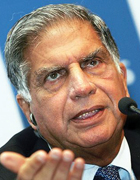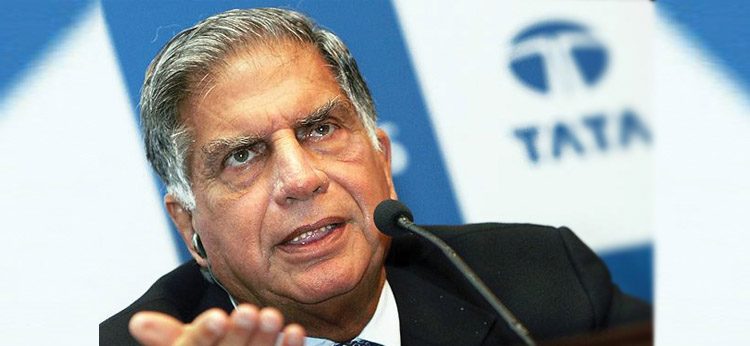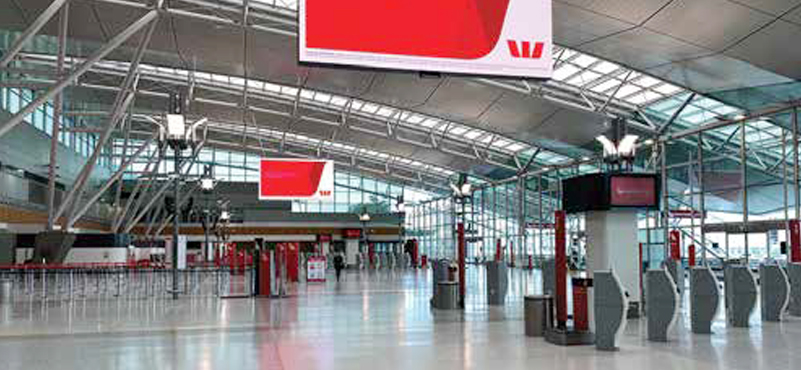Possibly, this is the one loose end that is holding back the announcement of the new Civil Aviation Policy. In recent weeks, as the pressure builds up to the announcement, both sides have upped the anté. We bring you a snapshot.

CHAIRMAN EMERITUS,
TATA GROUP
After a perceptible lull of nearly three months (the Ministry of Civil Aviation had closed the feed gathering exercise from the stakeholders on its draft policy around November end last year and since then there has been no official assurance from Rajiv Gandhi Bhawan on the possible schedule of the final unveiling of the new policy), it took a mere tweet from Ratan Tata on 21st of February to bring back the issue in the spotlight. And it sparked a serious row drawing battlelines, probably making the task much more difficult for the civil aviation ministry to strike the right balance in the final policy prescription. Going by a market perception, the civil aviation ministry already has quite a task in hand in synchronizing the pulls and pressures from different quarters.
Ratan Tata, described as someone who is at the pinnacle of “Indian corporate citizenry” by IndiGo’s founder Rahul Bhatia, in his tweet had strongly accused the established Indian carriers of lobbying hard to sustain the 5/20 provision which will not allow new carriers Vistara and Air Asia’s Indian subsidiary (Tata group is a leading stakeholder in both these companies which are barely over a year old in the Indian sky), to fly abroad in the near future. Tata’s argument was given the changing dynamics of the aviation business wherein Indian carriers need to pick up more strength in their international operations, such a rule has no validity. And what followed almost amounted to unleashing a brouhaha with SpiceJet Chairman and the new poster boy of Indian aviation Ajay Singh first picking up the gauntlet on behalf of the established carriers and then within a short span of just 24 hours, all members of Federation of Indian Airlines (FIA) comprising Jet Airways, IndiGo, SpiceJet and Go Air, coming out in the open charging Ratan Tata of towing a line which is purely self-serving rather than in the larger interest of Indian aviation. “The Draft NCAP (National Civil Aviation Policy) creates an unfair playing field by asking existing airlines to continue to maintain the same level of regional and remote area deployment under the route dispersal guidelines (RDG), while allowing new entrants to build less encumbered and more cost-competitive networks as a result of the draft NCAP proposal to remove/dilute rule and prevent incumbents from redeploying capacity away from remote area routes (North-east, Andaman, J & K and Lakshadweep),” the FIA members maintained in a joint statement. But just a day after FIA’s putting up a joint front in favour of retaining 5/20, Tata Group in an elaborate press release emphasized how 5/20 has hampered the growth of Indian aviation. “The 5/20 rule has thus far principally benefited only foreign airlines, who have captured 70% of the international traffic with India, taking Indian jobs and revenue with them. This has also resulted in poor utilization of bilateral air traffic rights by Indian operators,” that was the crux of Tata Group’s rebuttal.
The open war of words from both quarters has clearly created some kind of piquant scene. Ratan Tata’s demand for abolition of 5/20 is clearly not a voice in isolation. Many leading observers, both global and domestic, have also mocked at it calling it totally illogical with no parallel in any other country in the world. But then, it is also no secret to anybody that RDG has been a critical pain point for carriers in the country in terms of commercial viability. The government, however, is unlikely to do away with RDG since it is fairly convinced that without this provision, many remote locations in the country would have never made on the Indian aviation map.
The imbroglio simply raises more pertinent questions which are not easy to answer. For instance, can Ratan Tata be totally absolved of the charge that he is driven more by the interest of the carriers where his company has stakes? Conversely, is the other side trying to play the victim card? And in the process, very subtly using RDG as a bargain chip (some of them are on record saying that if 5/20 is abolished then RDG deserves the similar treatment). One of bound to ask, why are airlines like Indigo and SpiceJet making so much hue and cry on international rights. They have hardly shown any intent to emerge as a strong player in this segment in the past and given the kind of bulk aircraft orders which Indigo (the domestic market leader) has placed, it hardly reflects any ambition to criss-cross globally on its own at a future date. Somewhere, the established carriers also seem to project this tussle as that typical war between home-grown Davids and Goliath calling Vistara and Air Asia’s Indian subsidiary entities that are controlled from overseas. Or this imbroglio is all about ego-clash between the incumbents and the potential challenger? The scene is mired in confusion galore and given the perplexing equations, it is certainly going to be a tough task for the civil aviation ministry to settle this battle royale.




































